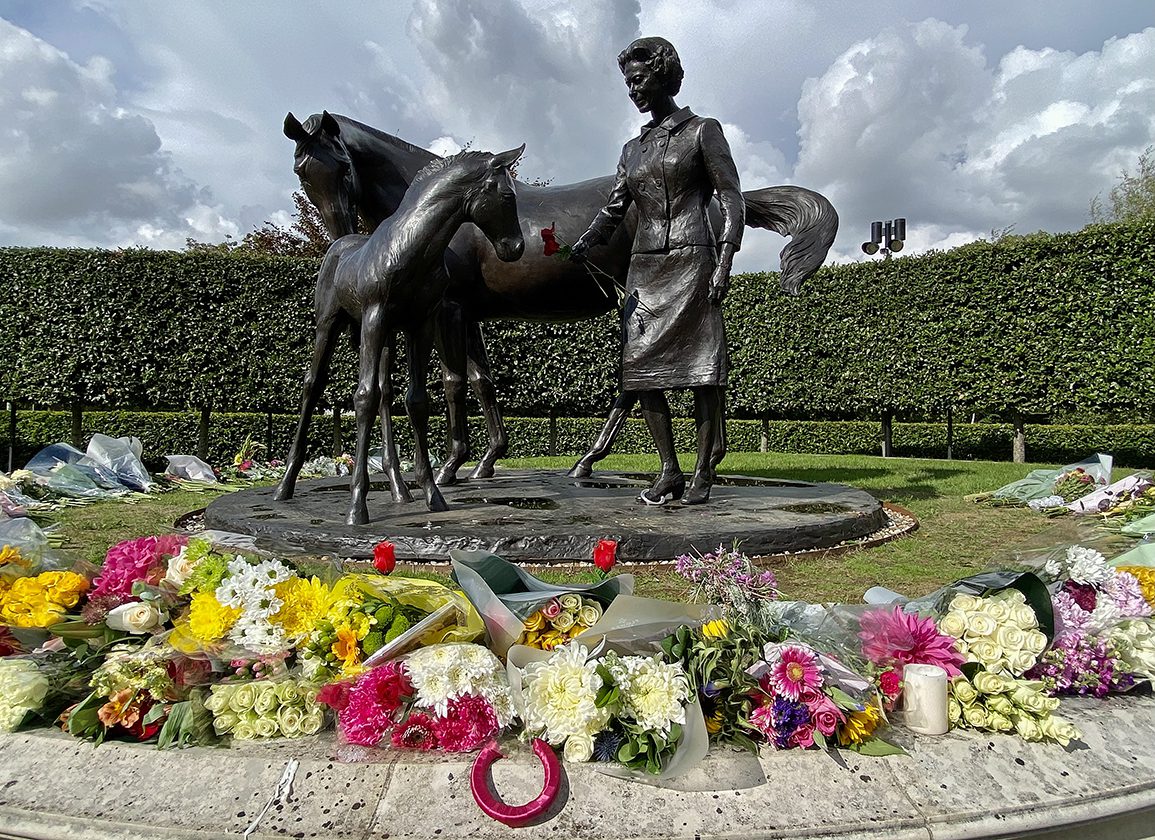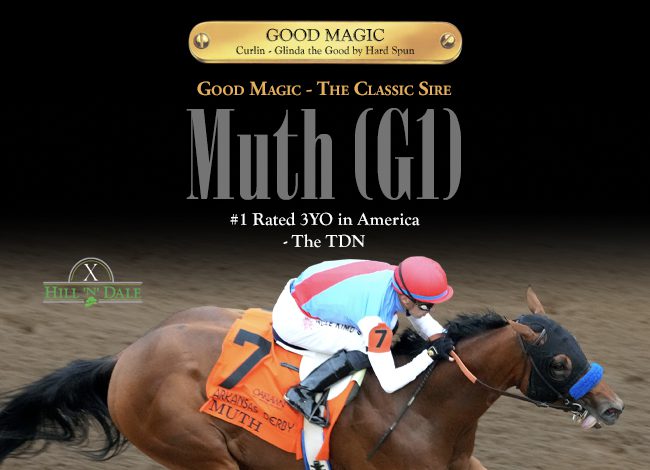By Emma Berry
On a dreich Scottish Thursday the unthinkable but inevitable finally happened and Britain's second Elizabethan era came to a peaceful end in a Highland idyll.
For anyone in Britain born after 1952, all we have ever known is the reign of Queen Elizabeth II. There will be plenty of people who, for understandable reasons, do not approve of the monarchy. And it has not been uncommon to hear people express an anti-monarchist view while adding, “But I like the Queen”.
How the passing of such a steadfast presence will affect Britain, at a time of political upheaval, is unknowable. What is certain is that British horseracing, not entirely devoid of its own political problems, has lost its most recognisable and beloved figurehead, one whose mere presence at the races gave the sport a priceless allure.
It was a two-way street, however, for as much as the Queen gave to racing, she quite clearly reaped her own deep enjoyment from being a participant: a breeder, an owner, and most of all an enthusiast.
From Her Majesty's first winner, Monaveen, at Fontwell Park in October 1949 before she became Queen, to her final winner on Tuesday at Goodwood, it is easy to imagine that horseracing, and breeding thoroughbreds for that pursuit, gave her much joyful respite from the constitutional duties she took so seriously.
The last horse to carry her distinctive red and purple silks to glory during her lifetime was the juvenile Love Affairs (GB)–not a graduate of the Royal Studs but a gift, like Carlton House and Estimate (Ire), from a fellow major owner-breeder. And Love Affairs could scarcely have a more apposite name when it comes to reflecting on Her Majesty's enduring passion for the turf.
Her death has plunged Britain into a period of national mourning, with racing suspended for Friday and Saturday, and almost certainly on the day of her state funeral, which looks likely to be Monday, Sept. 19. Within the relatively small world that is racing, there is an overwhelming feeling that we have lost one of our own, united as we all are in an obsession for discovering which horse can run faster than the others.
To see footage of the Queen casting a knowledgeable eye over her homebreds at the Royal Studs, or on holiday at Balmoral surrounded by her dogs, was to see the person behind the persona–a countrywoman at heart. But she lived an extraordinary life–of privilege, yes, but also one in which she bore the unimaginable burden of duty and restraint. Her existence spanned almost a century, through one World War, while her reign incorporated 15 British prime ministers born 101 years apart–her first being her fellow horse-lover and racing aficionado Sir Winston Churchill and the last, appointed just two days before she died in the Queen's final act of constitutional significance, Liz Truss.
While for many of us racing is a job as well as a passion, one sensed that for the Queen it was the greatest release–from greeting dignitaries, cutting ribbons, blessing ships, and reading endless parliamentary papers. And isn't that something we should all remember: that racing is supposed to be fun.
Lord Huntingdon, the uncle of current royal trainer Andrew Balding, trained for the Queen for 20 years, their winners together including the G2 Ribblesdale and G2 Geoffrey Freer S. winner Phantom Gold (GB) (Machiavellian), who is now the granddam of one of the Queen's most recent Pattern-race winners Reach For The Moon (GB) (Sea The Stars {Ire}).
He said, “One of the best things about training for her was that she understood that if things didn't go quite to plan, the trainer would be just as disappointed as she was. She took those disappointments with great equanimity.
“Usually it would be Henry [Lord Carnarvon, the Queen's former racing manager] who would speak to her after races but if something had run particularly badly he would sometimes suggest that I telephone her. The Queen would realise what was going on and would say, 'I imagine things didn't go well then'.”
He added, “It was always such a pleasure to go to see the yearlings with her at Polhampton and I have enjoyed seeing the continuation of her families, particularly Phantom Gold's. When she came to the stables she would take just as much interest in other people's horses as her own, and really it was just a pleasure to train for someone with such a depth of knowledge for horses generally, and with such a good sense of humour.”
Six years ago in Newmarket a statue was unveiled, between the Rowley Mile racecourse and the High Street, to mark the Queen's 90th birthday. It depicts her standing alongside a mare and foal and is an appropriate marker in a town which is not just a training centre but also home to a number of major stud farms as well as the headquarters of the Thoroughbred Breeders' Association, of which the Queen was patron since 1953.
There, on Friday, a constant stream of mourners appeared to place flowers at the foot of the bronze, heads bowed for a while in quiet reflection, or chatting to strangers united in common grief. The local primary school left a touching tribute which read in part, “We remember with great fondness the connection the Queen had with Newmarket and her love of horses.”
And indeed, her trainers in the town–Sir Michael Stoute, William Haggas, John and Thady Gosden, and Michael Bell–will miss her annual spring visit to see her horses exercising on the Heath. Beyond Newmarket, the Queen's patronage of British stables ran to Roger and Harry Charlton, Andrew Balding, Richard Hannon, Richard Hughes, Nicky Henderson, Charlie Longsdon, and her newest recruit, Clive Cox, who trained her final winner on Tuesday.
But the outpouring of tributes at the news of the Queen's death came from way beyond these shores. Claiborne Farm posted photographs on social media showing the Queen inspecting Round Table and Mr. Prospector on a visit to Kentucky–those two great names alone being indicative of the longevity of her interest. In the racing world, Olivier Delloye, CEO of France Galop, perhaps summed it up best when saying, “For all racing lovers she was our Queen too.”
Indeed she was. The Queen loved racing, and racing loved the Queen.
Not a subscriber? Click here to sign up for the daily PDF or alerts.






